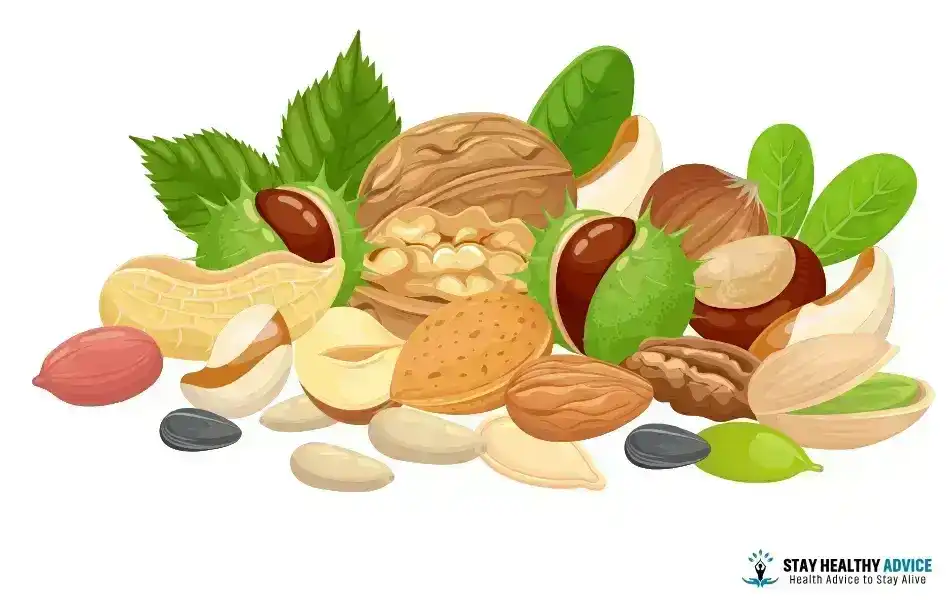
In the realm of nuts, cashews, and walnuts hold esteemed positions, not just for their distinctive flavors but also for their health-enhancing attributes. Often hailed as powerhouses of nutrition, both these nuts offer a plethora of benefits that can significantly contribute to a healthier lifestyle. Let’s delve into the organic and simple world of cashew and walnut benefits, exploring how these nuts can be the small yet mighty heroes of your diet.
The Cashew Chronicles
Cashews, with their unique shape and sweet, buttery flavor, is not only a favorite snack but also a versatile ingredient in various dishes. However, the appeal of cashews goes beyond their taste. The nutritional profile of cashews is impressive and contributes to many health benefits.
Cashew Nutrition benefits are as follows:
- Healthy Fats: Despite the high fat, cashews contain mostly monounsaturated and polyunsaturated fats, which are beneficial for heart health.
- Proteins: They are a good source of plant-based protein, making them an excellent snack for vegetarians and vegans.
- Minerals: Cashews are rich in magnesium, potassium, iron, and zinc, contributing to improved heart health, brain function, and immune system support.
- Vitamins: They provide essential vitamins such as B6, vitamin E, and Vitamin K, which play crucial roles in maintaining bodily functions.
Cashew Benefits: The Nutritional Gems
Heart Health: The healthy fats in cashews can help lower LDL (bad) cholesterol levels and increase HDL (good) cholesterol levels, reducing the risk of cardiovascular diseases.
Bone Health: Magnesium, found abundantly in cashews, is vital for bone formation and maintenance, helping prevent conditions like osteoporosis and you can have a plethora of cashew benefits.
Weight Management: Despite their high calories, cashews can be part of a weight management plan due to their fiber and protein, which help keep you full longer.
Diabetes Risk Reduction: The low sugar and high fiber in cashews can help in controlling blood sugar levels, thereby reducing the risk of type 2 diabetes.
- Improved Brain Function: Essential fatty acids present in cashews are important for brain health, contributing to improved cognition and memory.
- Antioxidant Properties: Cashews contain compounds like zeaxanthin and lutein, which can protect the eyes from damage and decrease the risk of diseases like macular degeneration.
The Walnut Wonders
Moving on from the soft curves of cashews to the rugged, brain-like structure of walnuts, these nuts are not only intriguing in appearance but also in their nutritional offerings. Walnuts are celebrated for their incredible health benefits, stemming from their rich and unique nutrient profile.
Walnut Nutrition:
Walnuts stand out due to their high of alpha-linolenic acid (ALA), a type of omega-3 fatty acid, which is key to their health-promoting properties. Here’s what else these nutty kernels have to offer:
- Omega-3 Fatty Acids: Walnuts are one of the richest plant sources of omega-3, which is crucial for heart and brain health.
- Antioxidants: They are packed with antioxidants, which help combat oxidative stress and can reduce inflammation.
- Minerals and Vitamins: Providing manganese, copper, magnesium, phosphorus, and vitamin B6, walnuts support various bodily functions, including metabolism and nerve function.
- Fiber: Like cashews, walnuts also contain fiber, which aids in digestion and promotes a sense of fullness.
Walnut Benefits:
Heart Health: Omega-3 fatty acids in walnuts help reduce the risk of heart disease by lowering blood pressure and cholesterol levels, and preventing arterial plaque buildup
Brain Health: The neuroprotective compounds in walnuts, including vitamin E, folate, and omega-3s, support brain health, potentially reducing the risk of Alzheimer’s disease.
Cancer Prevention: Some studies suggest that the phytochemicals found in walnuts may have anticancer properties, particularly in reducing the risk of prostate and breast cancer.
Weight Control: Although high in calories, walnuts can be a part of a weight management diet. Their protein, fiber, and healthy fats help control appetite and prevent overeating and enjoy the walnuts benefits.
Gut Health: The fiber in walnuts contributes to a healthy gut by promoting the growth of beneficial bacteria, leading to improved digestive health.
Integrating Cashews and Walnuts into Your Diet
Incorporating cashews and walnuts into your diet is both easy and delicious. Here are some simple and organic ways to enjoy these nuts:
- As a snack: Both nuts are great on their own as a snack. Just remember, moderation is key due to their high-calorie.
- In salads: Add some crunch and nutrition to your salads by sprinkling chopped cashews or walnuts on top.
- With breakfast: Stir them into your morning oatmeal or yogurt for an extra dose of energy and nutrients.
- In baking and cooking: Both nuts can be a great addition to baked goods or used as a crust for fish or chicken.
Conclusion
The journey through the nutritional landscapes of cashews and walnuts reveals how these nuts are not just snacks but also significant contributors to a healthy diet. With their wide array of benefits, from heart and brain health to weight management and cancer prevention, cashews and walnuts are truly nutritional treasures worth incorporating into your daily meals. As with all foods, the key to reaping these benefits is consuming them in moderation as part of a balanced diet. So, the next time you reach for a snack or look to enhance a dish, remember the simple yet profound health gifts that cashews and walnuts have to offer.